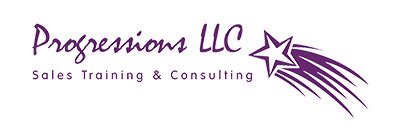Questions Build Relationships
Selling is leading. You lead the customer by one simple activity and that is by asking open-ended questions. The person that asks the question holds the steering wheel - steering that conversation in the direction that will help them obtain the information that will best serve the customer.
Use phrases and open-ended questions such as:
“Tell me a little bit about yourself.”
“What’s important to you in _____________?”
“How have you worked with _________ in the past?”
“What’s important to you in a ____________ representative?”
“If you had a wish list for your ___________ what would be on it?
There is an art to asking questions. It comes in a two part skill, the asking and then more important the listening. When you ask someone a question that truly demonstrates your interest in them and then focus completely on their answer- a relationship begins! Here’s where good listening skills come in. Follow these easy steps and demonstrate that you truly value your customer’s point of view:
Give the speaker your full attention. Avoid distractions. Don’t let your thoughts drift to unrelated matters.
Visually focus on the speaker. Use an interested gaze. Eye contact helps you pick up on body languages and facial expressions.
Observe the speaker’s body language. Facial expressions, gestures, and voice tone provide valuable insights to the speaker’s emotional state.
Use positive body language. Lean a bit forward toward the speaker. Avoid negative gestures like bored looks, scowls, or tapping a pen.
Stay open-minded. Avoid making assumptions, even if you’ve heard similar comments or complaints before.
Don’t interrupt the speaker. Ask an effective question. Then zip it and listen.
Take notes. Jot down key points. This gets you more involved with the speaker. Notes also help you remember important facts.
Use conversational cues. Nodding encourages the speaker to continue. Phrases like “yes”, “I understand,” or “I see” encourages people to keep talking and provide additional information.
Paraphrase key details. Restate in your own words what you think the speaker has stated or asked. Ask the speaker to verify that you’re on the right track.
Ask more questions. If you don’t understand certain points, ask the speaker to clarify.
Questions demonstrate interest. They simulate thinking. When you ask your customer a question, they provide their points of view and give us valuable information with which to select the best product or service for them. Questions get people to open up and actually persuade themselves in the process. They believe what they say and “buy-in” to their own comments.
When you develop your skills in asking the right questions and improve your listening skills new relationships will unfold and the customer chooses to buy versus ever feeling sold!
